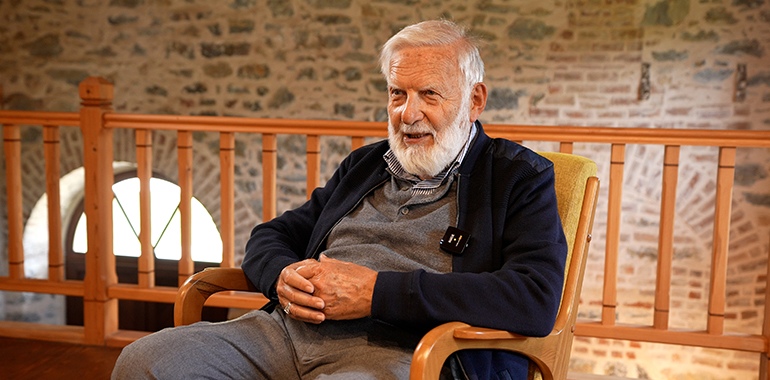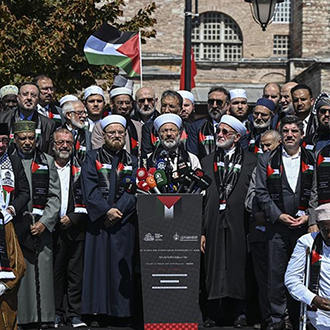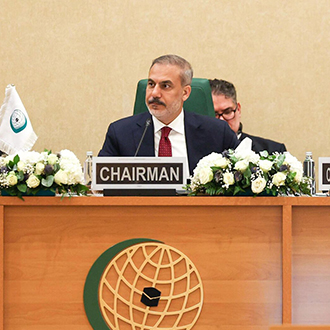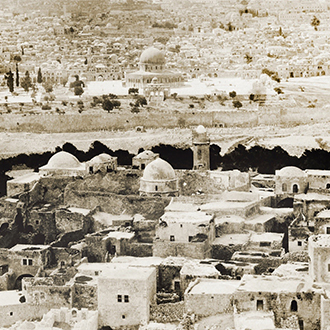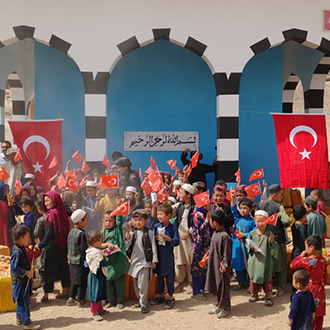Sadettin Okten was born on September 1, 1942, in Istanbul. He graduated from Istanbul Technical University, Faculty of Civil Engineering, with a Master's degree in Civil Engineering in 1964. In 1969, he was appointed as an assistant at the Reinforced Concrete Professorship in the Faculty of Architecture at Istanbul Technical University. Between 1971 and 1973, he resided in the USA as a guest doctoral student and successfully obtained his Ph.D. degree in 1977. He also earned a scholarship and completed his master’s degree in the USA. During the academic year 1979-1980, he conducted scientific research in Belgium. In 1982, he attained the position of associate professor, and in 1985, he joined Mimar Sinan Fine Arts University. By 1989, he became a professor. Prof. Dr. Sadettin Okten is renowned for his speeches and studies on cities and civilizations, especially Islamic civilization. He has delivered lectures on the History of Science, the History of Building Technology, Urban Culture, and Urban Aesthetics at various universities. Additionally, he possesses a special interest in the history and philosophy of science, culture, civilization, and art. Presently, alongside his professional endeavors, he continues to work in the field of culture and art.
Allah (swt) states in the Holy Qur’an, “As for the sky, He raised it ˹high˺, and set the balance ˹of justice˺ so that you do not defraud the scales.” (Rahman, 55/7-8), indicating that everything in the universe was created in balance. Considering human beings, the environment, and many other living beings in ecological balance, what is the value of being a living creature?
When we examine this question from different perspectives, various answers emerge. I define the issue of different mindsets as a concept of civilization, that is, how you position yourself and the whole existence around you when you look at life according to a system of values. Life is a chain of actions. How you act according to this positioning is important. From this point of view, we see two basic phenomena. One is modernity, and the other is the conception of Islamic civilization. Modernity regards life in terms of dominance. Because modernity is based on rationality, it operates on that basis. On the other hand, if we consider certain Islamic concepts, the mind is subordinate to the nafs. Consequently, modernity is rational in a sense and brings up the actions of the human ego. This has been the case since ancient times. It is also the same in modern times, and a very typical example of this is Machiavelli.
According to the Islamic conception of civilization, service plays a fundamental role. Human beings, unlike other living beings, possess the unique character of being able to alter nature. While other creatures cannot change nature and live in harmony with it, human beings have been granted the ability to modify it. Human beings were given this ability. Yet, every blessing given by Allah the Almighty comes with a responsibility, so when people contemplate the environment, and if they think about how they can use their ability to change the environment, then they may be able to use that ability with greater care. But which people are we speaking about? We are talking about people who live according to Islam. Those who possess a mindset aligned with the principles of Islam and have faith in Allah, as well as those who believe in the teachings of the Prophet, understand that the environment has been entrusted to them. To use a modern term, ecological balance means to act without disturbing the flow of life together with the other elements in life. That flow is the one set forth by divine decree. Human beings are obliged to follow that flow. It would not be incorrect to assert that modernity initially deceives itself with such terms. We can state that modernity captivates individuals who lack an understanding of the profound nature of these concepts and remain oblivious to their intellectual and emotional dimensions, steering them in an alternative direction.
In other words, the people of Islam regard life in terms of service, and they know that this environment entrusted to them is the result of divine decree, and they see beauty in it. They know that only they have the ability to change it. No other creature can alter the environment like human beings. When the environment undergoes significant changes, other creatures may face adverse consequences, even death. However, human beings possess the ability to adapt and continue their lives amidst environmental changes.
When we look at present-day situations, we observe that human beings have been subjected to rapid change as well as technological developments. How do you think people’s mental transformation and their perspective on the universe have affected their relationship with the environment?
My students also ask me this question, and I say, “What has gotten faster? Did the rhythm of nature change? Did the speed of the earth’s rotation around the sun change? Did 365 days become 350 days?” They respond with a no. “So, does the earth revolve faster around itself, or have 24 hours become shorter?” They reply in the negative to that question as well. “What about your heartbeat and your breathing? Has it accelerated?” Once again, they respond with a "no.". I go on like this, and finally, I ask what has changed and they finally say technology. It is at this juncture that I pause and encourage them to delve into the history of civilization.
There have been three major changes in the history of civilization. These are serious changes; one of them is the transition from a mobile, gathering, and hunting society to a settled society, marking the transition to agriculture. The second is the transition to industrialization. The third is the current transition we are experiencing, which is the shift toward informatics. In fact, the things that seem to be changing very fast are the small steps of informatics. In many ways, we are living in a dream-like world. This is the dream world of modernity, which entices and captivates individuals. Therefore, among the things that do not change very much and are extremely rare are important works that sustain and maintain life. I invite distinguished minds to contemplate such works, to connect with them, and to offer commentaries and interpretations of them.
Of course, there is also the dimension of consumption at play. When the masses are led to believe in this rapid pace of change, they tend to perceive the objects they use as transient likely to become obsolete in a short period. There is a tendency therefore to define one’s existence through material possessions. However, I hold the belief that it is not in alignment with human dignity for people to define their existence through objects. I believe that people should define their existence through art, knowledge, and, undoubtedly, morality. This is also reflective of my personal relationship with the environment.
Islam declares that the life and the world bestowed upon human beings are a creation of Allah the Almighty and a trust (amanah) from Him to us. Human beings are responsible for improving the world, not destroying it. How should people’s relationship with the environment be in the context of the concepts of trust and right?
We are mortal beings that undergo the natural progression of life; we are born, we grow older, we reach middle age, we grow old, and we die. However, our departure from this world does not leave it empty. We have benefited from this world; we have used it, and we know that it has been given to our disposal. So can we leave it better than we found it? Can we at least leave it as we found it? This is already a reality that Islamic principles set forth and it does not need to be specified. Modernity does not do this, as is evident in global warming and other environmental issues. Despite all this, as Muslims, we strive to leave our environment, the area entrusted to us, as clean and pristine as possible. Muslims are obliged to leave the environment more beautiful, cleaner, and more habitable than how they found it. This is the principle that emerges when we consider it from an Islamic point of view. Let me also state here that people do not live alone; they live collectively. Therefore, Muslims are obliged to observe the rights of others in their relationship with the environment.
The destruction of humanity and ecology brought about by the rapid rise of technology and advancement is becoming more and more inextricable and complex, spreading like a disease. What do you think is the prescription for remedying this ailment?
The rapid pace of technological change may appear extensive, but it is important to recognize that no living creature or human being can act beyond the laws of nature. Therefore, we should mentally set the boundaries for these rapid and overwhelming developments. The minds behind these advancements, the innovators, and those who market them are all servants of Allah, even if they may not realize it. They carry out their work with the abilities bestowed upon them by Him. If Allah commands against something or deems it nonexistent, it cannot occur. By confining this rapid reality to a small realm, Muslims can maintain a sense of perspective.
Human beings are driven and captives of pleasures, and these pleasures are, at the lowest level, bodily pleasures. All animals have them. However, when one does not allow their mind to be dominated by bodily desires, they can engage in scientific pursuits, delve into philosophy, experience the joys of the intellect, and engage in contemplation. When such a door opens in your life, bodily pleasures will not be so important to you. Moreover, beyond that, there are emotional pleasures. If you make art, you enter the world of emotions, and that world opens such doors for you that bodily pleasures become very insignificant and tasteless in that emotional journey you make. When we consider the art of our age, bodily pleasures have unfortunately captured both the mind and the emotions. Therefore, the current art of modernity is the art of bodily pleasures.
Therefore, seeking an alternative space, world, or universe beyond the rapid pace of technology, means striving to delve into the potential of reason and experience its joys. For instance, by solving mathematical problems, we can derive immense satisfaction from simple geometry puzzles, thus becoming aware of our mental existence. Language provides us with endless avenues for exploration, and the depth of human analysis is truly remarkable. Philosophical inquiries offer profound insights as well. Additionally, there exists the realm of art, which necessitates some level of talent. However, even the study of art history and aesthetics imparts knowledge. Through these pursuits, we come to appreciate our existence. Everyone possesses instinctive bodily pleasures, but it is essential to realize that you are not bound to that realm. An immense potential awaits you, and a universe may unfold for you. While bodily pleasures will always accompany you, do not allow yourself to be enslaved by them. This is when you transcend the allure of bodily pleasures presented by technology. In other words, you are not constructing your essence with tools, vehicles, or instruments; your being resides within you. You exist through your knowledge, contemplation, and art.
From a professional point of view, how should the relationship between the city and the environment be in the Islamic civilization?
This is the main focus of the courses I lecture at the university where I work. Allow me to outline a brief framework. Human beings exist through their actions and deeds. And what is their reference in doing these actions? They perform these actions according to the system of values they hold. When we observe all human beings, both at the individual and societal level, they all have a belief, whether you call it presuppositions or faith. According to those presuppositions, an ideal world exists in our minds and emotions. We do our actions in the physical world based on these underlying assumptions.
A very typical example of this is the greeting. The way you greet a person reveals your identity. There is no need to elaborate. Your attitude is revealed even in the routine things you do every moment. There are two basic qualities of our existence while performing these actions. One of them is a function, for example, drinking water; when we are thirsty, we fulfill our body’s needs. There is also a symbol and an emotional dimension to this; when we drink water, if we say Alhamdulillah, we add a symbol to it. We call this symbolic dimension adab (decency). In all our actions, we need to show grace, delicacy, and dignity, first to ourselves and then to the environment; this is what we call adab. Well, cities do not exist in nature; we build cities. We construct their physical structure, streets, avenues, houses, temples, and monuments. Why do not we think about adab here? We think about adab when we drink water, but why don’t we think about adab when we build a city? Therefore, the first principle of building a city is adab. We need to pay attention to it when building a city. Do we? We did in our ancient cities, but in our modern cities, it is a bit of a mess.
The second is the principle of wahdat (oneness). When we build a city, we follow the laws of nature. What we build the city with is material, and Allah created it (the material). We can intervene a little with the material. Similarly, we build a city with the mind Allah has given us. But Allah the Almighty has also laid down some social laws. Rights, justice, inheritance, parental relations, trade laws, and so on. While building a city, we need to look at whether we are breaking a social law or not. Thus, we have two basic principles: adab and wahdat. We have to abide by them.
How do you think we can create sensitivity and social awareness about climate and environmental change caused by global warming?
I think that at least I should not do it. I mean, I should not consume, and I should not waste even if others do. I think I should allocate as much of my means as I can to service. I say I should not do something and I say I should be aware of it as much as possible. This is because many people do it without realizing it. As you become aware and realize that environmental pollution is a result of your greedy consumption, you feel a sense of shame in terms of being a human. You say I should not be doing this because my intellect and my emotions carry me to another higher dimension. You understand that environmental pollution is the projection of an instinctive action onto the outside world. Therefore, I hope through this we will realize our humanity and not do it.



